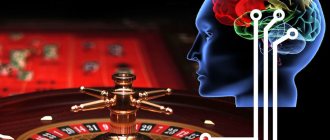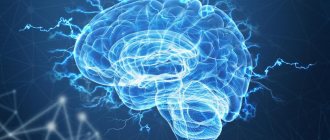Drug addiction brings terrible consequences to a person's life. Side effects from drug use may not occur immediately. Is it worth taking measures to overcome the consequences of drug addiction? What exactly are the effects of drugs ? How to help a person who is faced with the consequences of drug use?
In order to get an answer to this question, you need to understand what the consequences of drug addiction are. The drug wave surged a couple of decades ago and today the circle of people who depend on psychotropic substances is frightening in its scale.
Left untreated, the consequences of drug addiction can damage the lives of future generations. What does drug use lead to? What will happen to humanity if the consequences of drug addiction are not eradicated? How to solve the global problem of drug addiction in order to ensure a happy future for your children and grandchildren? What does drug use lead to?
Physiological consequences of drug addiction
Long-term drug use leads to the destruction of all organs and systems of the body. Physiological consequences of psychoactive substance use:
- HIV AIDS;
- viral hepatitis;
- heart attacks, strokes, ischemic heart disease;
- sepsis;
- blood poisoning;
- syphilis;
- tuberculosis;
- heart failure;
- infertility;
- cancer.
The range of diseases depends on what kind of substance the addict takes. For example, those who use desomorphine rot alive, experienced heroin addicts often have complete intestinal failure, and those who are on methadone have bones that become brittle and break even with a mild blow, the person experiences constant severe pain in the joints, and their liver is destroyed.
And the main physiological consequence of drug addiction is withdrawal, which is accompanied by unbearable physical and psychological suffering. The heavier the drug a person takes, the worse the condition that follows after its withdrawal.
BRAIN AND NERVOUS SYSTEM
The brain is the most important organ of our body. He is responsible for ensuring that all systems work correctly. Of course, nature also ensures that it protects, or at least tries to protect, human organs from harmful influences from the outside.
One of these influences can easily be called drugs. Moreover, they are very different: from artificially synthesized to grown in the natural environment. All of them are poisons that poison the human body.
In an attempt to protect itself from toxins, the brain commands the blood vessels to constrict. Yes, this prevents the rapid penetration of poisons into organs, cells, and tissues. But vasoconstriction also leads to oxygen starvation. And this seriously wears out the internal organs. In general, a lack of oxygen always leads to the death of cells that lack nutrients and vital substances supplied by the blood. Under natural conditions, such fasting would not lead to dire consequences. The body could quickly restore dead cells. But drugs remain in the blood for a long time, slowing down all natural processes. That is why we can say that a person is no longer able to quickly recover from the influence of toxins. His body is slowly dying.
Those observations are also true, during which it turned out that drugs cause irreparable harm to the human brain. Always from a lack of oxygen (a consequence of vasoconstriction), the rapid death of brain cells begins. In general, this organ requires a lot of oxygen, and the slightest changes negatively affect its condition. This is if we talk about small differences in external conditions. And poisons, toxins and other toxic substances are undoubtedly the most serious blow, which immediately manifests itself in changes in the human psyche.
Psychological consequences of drug addiction
Drugs destroy the psyche and affect emotions - a person becomes nervous, irritable, hot-tempered, often aggressive, or vice versa lethargic, drowsy, unemotional, apathetic.
All drug addicts develop neurosis. Those who sit on salts often experience panic attacks and nightmarish hallucinations, during which drug addicts commit suicide - not because they wanted to, but because they were fleeing their nightmares.
In addition to neuroses, drug addicts suffer from:
- bipolar personality disorder;
- depression;
- schizophrenia, including its severe form - paranoid.
BRAIN DISORDERS AND THEIR INFLUENCE ON HUMAN SOCIALIZATION
It has also been known for a long time that drug addicts lose awareness of reality. A big role in this is played by the feeling of euphoria that they experience every time after using drugs. It seems to them that it is better to live a short life, but filled with higher emotions, than vice versa.
This leads to such problems that a person stops working and earning money. Moreover, he almost always sells off everything he accumulated before he got sick.
Even worse, people often deliberately commit crimes. According to official data alone, more than 200 thousand crimes in our country per year are committed by drug addicts.
In any case, even the well-known excuse that some of the greatest works were created under the influence of drugs is only the tip of the iceberg. In all cases, these artists, writers, and composers ended rather pitifully. Experts note that creativity and emotions are inextricably linked. And drugs provide an emotional boost, but only a limited number of times. Very soon they turn into a disease and kill a person so quickly that it is difficult to imagine.
Social consequences of drug addiction
Social activity among drug addicts decreases. They do not participate in anything - neither in elections, nor in the life of the team - they communicate only with their own kind. They create problems for people without addiction because they often behave cheekily, immorally, show aggression and are capable of crime.
Job
Many drug addicts do not work. Those who have not yet lost their job experience difficulties in performing simple actions - their reaction is inhibited or they make many unnecessary movements, are not collected, distracted, and have problems remembering and comprehending.
Due to the progression of drug addiction, the employment contract is repeatedly violated. In the end, the employer is faced with the fact that such a person needs to be fired. This is necessary to protect other workers from his aggression and unprofessionalism, which often entails the creation of emergency and even life-threatening situations in the workplace.
Relatives
Drug addicts exploit their relatives, extorting money from them for drugs and accommodation. Many go even further, taking the criminal path - robbing people on the streets, taking valuables from their relatives’ homes and selling them on the market for pennies, not caring about the real cost - as long as they have enough for the next dose.
A drug addict in search of money is able to kill anyone - he doesn’t care, just to get the drug.
Family Institute
Drug addicts are unable to start a family. They can cohabit with their own kind. This makes their existence easier - it’s easier to get drugs and easier to take them, at least it’s safer. Such “families” live in attics, or in basements in cold weather.
If a drug addict gives birth to a child, then with a 99.99% probability he will be sick:
- with brain pathologies - mental retardation, cerebral palsy (if mothers used LSD);
- with vascular pathologies - fetal stroke, vasospasm, hypoxia (if the mother used cocaine);
- with pathologies of the nervous system;
- genetic abnormalities;
- with deformities in the form of a cleft lip or cleft palate (if the mothers used amphetamine), with a small head (if the mothers used marijuana or hashish).
In Russia there is no clear program to combat drug addiction. There are rehabilitation centers, but the understanding of the problem itself is one-sided.
The situation with drug addiction in the Russian Federation
In some “clinics,” drug addicts are detoxified, charged a lot of money for it, and then sent home. Psychological work is not being carried out, without which a return to the old life is a matter of time. Someone gets on the needle again after just a few days, others, who have not yet lost their clear thinking, hold on, but still break down, because it is impossible to cope with mental dependence on a drug only through willpower.
In addition to detoxification, other clinics practice occupational therapy. This gives a certain effect and seems to get rid of drug addiction and its consequences, but only as long as the person is within the walls of a correctional institution. Having left there for free swimming, a few continue to lead a sober lifestyle. Most people relapse sooner or later. Occupational therapy cannot replace psychological help.
EXTERNAL SIGNS OF MENTAL DISORDERS AND NERVOUS SYSTEM
You can usually tell that a person is taking drugs by his condition. And although many experts note that most drug addicts are identified only in the later stages, if you are interested in a person’s life, his hobbies, then changes in behavior can be detected immediately.
- Firstly, drugs disrupt sleep and wakefulness. It is normal for drug addicts to not sleep and feel cheerful, full of energy for days and even weeks on end. The opposite of this state is a drowsy, lethargic feeling. In particularly advanced cases, a person can sleep for a day or more, waking up only to look for a new dose of the drug.
- Secondly, one of the side effects of drug use is auditory and visual hallucinations. A disordered psyche paints pictures quite similar to reality in people’s minds. This often leads to injury or even death to addicts.
- Thirdly, extreme states of people are very dangerous. Drug addicts can either be incredibly excited and joyful, or instantly switch to paranoid or suicidal thoughts. Such sharp jumps lead to rapid fatigue of the emotional component of a person. Literally, we can say that it burns out like a match. Both physically and mentally.
- Finally, logical thinking seriously deteriorates and cognitive abilities decline. Without exaggeration, drug addicts are not interested in anything other than a new dose. And it is almost impossible to overcome such attraction. The history of medicine knows only ordinary cases when a person voluntarily and without outside help could get rid of drug addiction. That is why clinics and entire centers for the rehabilitation of drug addicts are being created today. Because they need to be helped to recover from their illness.
The behavior of the drug addict itself changes seriously. You can notice that a person is addicted to drugs by the fact that things and money disappear from the house.
Another clear sign could be a new social circle. Usually, it is difficult to find out, but if among your new friends there are drug addicts, then things are bad. Addicts give up their hobbies and aspirations. Athletes stop training, dancers are reluctant to perform, singers sing less often.
It has long been noted that people “on pins and needles” know how to lie skillfully and plausibly. In this matter they achieve amazing heights. They manage to justify themselves, to evoke pity for themselves. And this is where a new problem takes its roots, to which psychologists pay great attention: codependency. This definition is given to loved ones and relatives of drug addicts who feel pity for the drug addict in the family. They are either disappointed in the treatment, or they themselves buy doses for a sick person, so that he does not suffer. Of course, this is completely wrong. Drug addiction can and should be treated. This is the only way to get rid of addiction and prolong life.
Light herbal drugs
Marijuana, hashish, hemp and other plant drugs are mistakenly perceived by many people as safe and easy to quit. In fact, regular use of such drugs also leads to addiction, and also causes chronic forms of bronchitis, asthma and even lung cancer. The functioning of the nervous system is disrupted. Another side effect of smoking weed is a sharp increase in appetite and weight gain. Male and female infertility often develops.
HOW DRUGS AFFECT OTHER ORGANS. HEART
Almost all drugs affect the heart in approximately the same way. They disrupt the regulatory functions of the brain, causing the muscle to work unevenly. Blood pressure either rises quickly or falls dramatically. The frequency of contractions of the heart muscle is disrupted. Tachycardia may be replaced by a sharp drop in heart rate. And all this happens, literally every minute.
- Plant drugs contain opiate substances that stimulate the nervous system and brain. Extreme states either provoke the release of joy hormones or freeze. The heart works hard, regularly changing its rhythm. This also affects blood vessels throughout the body.
- Synthetic drugs are dangerous because they are poorly excreted from the body. Salts, for example, take years to be washed out, and only with professional medical care and regular procedures. That is, such drugs affect the heart for a long time. Salts cause pressure to jump, resembling a sinusoid. The body temperature rises to 41-42 degrees, and the person is so excited that the heart literally “jumps out of the chest.”
The results of such “pampering” are: arrhythmia, hypertension, hypotension, cardiac dystrophy, heart failure. Unfortunately, these phenomena will accompany people who have even given up drugs.
LIVER AND KIDNEYS
Whatever the type of drug, the damage to the liver and kidneys is very serious.
So, the kidneys are forced to work more than normal due to the fact that the body actively removes water through sweat and urine. All drug addicts suffer from dehydration and drink a lot of fluids. Naturally, all of it is driven through the kidneys, where all harmful substances are deposited.
The liver filters the blood. And when there are a lot of poisons and toxins in the blood, most of them remain in the liver, gradually poisoning the organ. But no matter what the liver is, it is not capable of removing all the drugs (otherwise they would not have an effect on people, being asymptomatic). Of course, the liver begins to work worse and worse.
- Even with ecstasy use, death due to kidney failure is possible.
- Hard plant drugs (heroin, cocaine) directly affect the development of liver disease - hepatitis. Such a serious disease can be transmitted through blood (the most common way to take these drugs).
- Synthetic drugs are so dangerous that they can easily lead to cirrhosis of the liver. Their chemical composition causes the liver to decompose alive to some extent. This is because they remain in the body for a very long time. And where do they settle? Naturally - in the liver.
What does drug abuse lead to?
According to experts, today in Russia, according to conservative estimates, about 10 million people use drugs. In a couple of years there will already be 30-40 million of them, of which 10 million will also be HIV-infected. These statistics are not the worst part of this problem. The scary thing is that the Slavic peoples are much more susceptible to the influence of drugs than any other nation. And this happens because we do not have genetic protection from this disaster. Historically, our ancestors were not exposed to this scourge in their lives. Therefore, our body is defenseless against drugs.
Drug abuse makes life a nightmare. Drugs completely control a person’s actions and thoughts. Therefore, he loses independence, freedom in action and decision-making.
In this case, not only the brain, but also the human body suffers. A person may feel unwell for no apparent reason. Drugs affect a person’s senses, depriving him of joy from simple events in life. He constantly needs the thrill provided by drugs. The drug does not give a person a choice, completely subjugating him. He cannot control himself, plan something, achieve goals. His only desire and desire is to find a drug.
Our center extends a helping hand to those who are faced with this disaster. Call us!
Share:
Rapid test and regular drug test
Drug addiction and their effect on humans
INFECTIOUS DISEASES
Drugs dull the functioning of the endocrine system. All the body’s forces are thrown into removing poisons and toxins that come with the drug. At the same time, immunity decreases. Therefore, among drug addicts there are so many not only seriously ill patients with AIDS, hepatitis, tuberculosis, but even those suffering from ordinary infectious and viral diseases. But those that are much more difficult to bear.
The effect of drugs on the human body must be considered in its entirety. There is no organ that suffers more or less. The entire human body “burns out” from the inside.
Why are drug addicts difficult to treat? Because a whole range of procedures is required. They need help in restoring their psyche and removing toxins from the body. All these are complex and lengthy events. Therefore, drugs are a real scourge of the twentieth century, which has passed on, like a legacy, into the new century.
Psychiatrist - narcologist Ampleev Alexey Konstantinovich
REPRODUCTIVE FUNCTION
The most monstrous effects of drugs are observed in women. Toxins very easily enter the eggs, which causes numerous problems in the offspring or even complete infertility. The worst thing is that this is passed on to subsequent generations, because the formation of fetal eggs occurs at the stage of embryonic development. That is, a woman can have a full range of diseases, even without using drugs, but if her mother did it.
In men, the most common phenomena are impotence or decreased sperm activity. They are often unable to fertilize an egg even long after quitting drugs.











